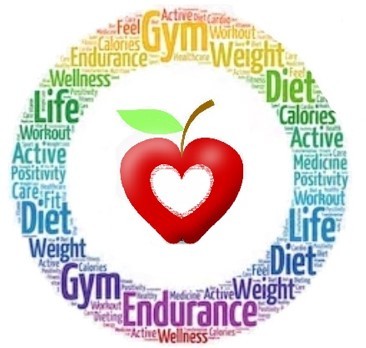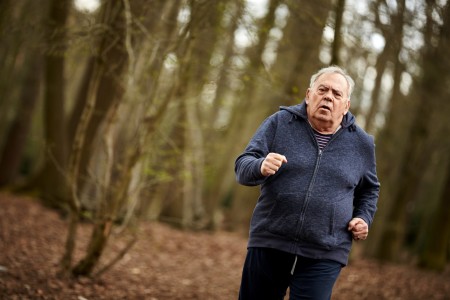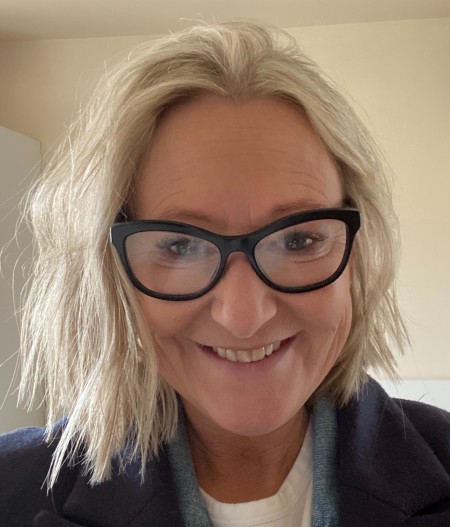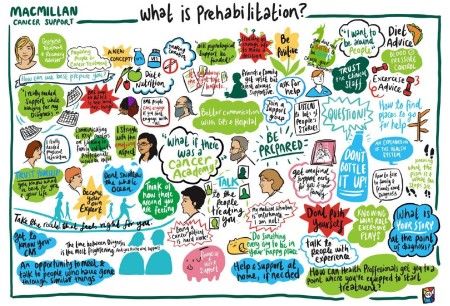Every person with cancer should have access to health and wellbeing information and support, as part of the Personalised Care Interventions, by 2020. The main aims are to support patients, families and carers through the provision of information and advice relating to health and wellbeing; to signpost those attending to local resources and services including local and national charities, both clinical and non-clinical; to facilitate interaction with other people affected by cancer, and to support self-management.
Various models of delivering health and wellbeing support for people affected by cancer exist, including the offer of either health and wellbeing events or clinics, or generic health and wellbeing support.

Macmillan defines a ‘Health and Wellbeing Event’ as follows:
A Health and Wellbeing Event is a service model that takes the form of a supportive event to help prepare people affected by cancer, their carers, and their family and friends for the transition through their cancer journey. The event brings together a range of service providers from health, social, community and voluntary sectors.
NHS England states:
Health and Wellbeing Information and Support includes the provision of accessible information about emotional support, coping with side effects, financial advice, getting back to work and making healthy lifestyle choices. This support will be available before, during and after cancer treatment.
These education and support events can be generic or specific to tumour groups and can take different formats, including presentations or a marketplace-style arrangement.

This organisation can then listen to a patient/carer’s needs and concerns, then refer or signpost them to organisations in the community who may be able to offer holistic support e.g. money worries/relationship concerns/physical activity programmes/mindfulness and relaxation courses.
All places across the Alliance are offering either health and wellbeing events or support, and some are offering both. A number of acute trusts, along with local councils and charities, are also looking into the offer of prehabilitation and rehabilitation services for patients. This offer will include specialised information and support to increase physical activity prior to and after treatment and surgery, as well as specialised nutritional advice and cessation services.

Useful Information
- Health & Wellbeing Events: How To Guide, Macmillan Cancer Support
- Health & Wellbeing Clinics and Events: Sharing Good Practice, Macmillan Cancer Support
Macmillan SafeFit - free remote service for anyone in the UK with suspicion of or confirmed diagnosis of cancer. Referral to a cancer exercise specialist who can help during Covid-19.- Cancer Care Map - find cancer services in your local area
Case Study: Using The HWBIS Checklist As A Quality Improvement Tool in Harrogate

As part of local collaborative cross-organisation work on health and wellbeing, the WYH Cancer Alliance carried out the pilot in collaboration with the Lead Cancer Nurse at Harrogate District Hospital, across four tumour specialities.
Caroline Summers, Macmillan Living With and Beyond Cancer Implementation Project Manager with the WYH Cancer Alliance, pictured right, shares a vignette about how the checklist has been used as a Quality Improvement Tool, and plans for the next stage of development.
Case Study: Using The HWBIS Checklist For Stock Take and Quality Analysis In Leeds
Abby Green, Macmillan Living With and Beyond Cancer
Prehabilitation and Rehabilitation
Recent studies have shown that prehabilitation and rehabilitation can be very important for cancer patients.


